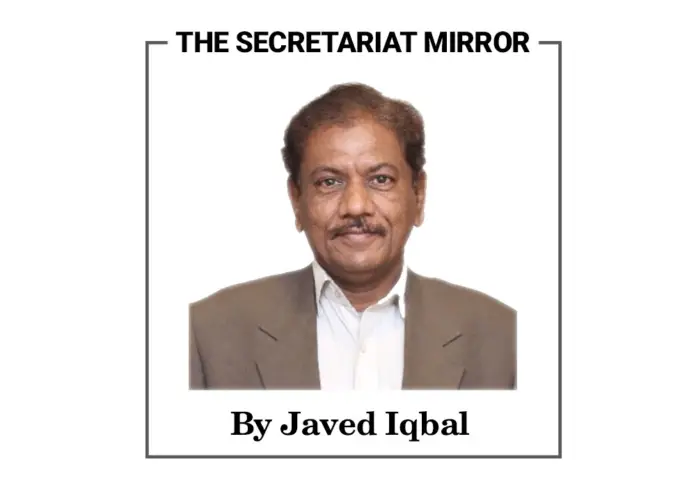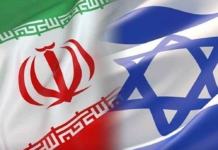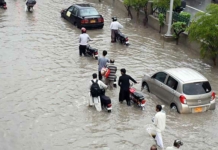The Economist once wrote about Pakistan-India relations: “They’ve got generals while we bureaucrats.” In Pakistan, the military and mullahs were strengthened, while in India the cosy relationship between politicians and bureaucrats reached the highest level to build the nation as the world’s biggest democracy.
If we compare the two, both are facing the same difficulties since the partition of the sub-continent in 1947. The graph of democracy in India is very high while ours is abysmally low. There is no external interference there while it is common here.
Now, whoever in Pakistan wants to have the power has corrupted it. We have seen that the bureaucratic system in Pakistan is full of flaws. Here, the bureaucracy still stands where it was introduced by the British in the 19th century because it was designed to rule the country and enslave the people. So, it continued with this role to date.
The British, deliberately, created a well-knit bureaucratic structure with only generally educated people becoming the top officers because the aim was to keep the people down through bullying and manipulation. The other objective was to strengthen the colonial system.
It should be noted that in this system creative passion has no place. These days, there is little room for honest and dutiful people. This is why there is a difference between the way of life of Pakistanis and the bureaucrats. Even today, they consider the masses as their subjects.
The notorious duo of officers and their political counterparts have corrupted the highest civil service and this has reduced its efficiency and capacity. Washington Post contributor Isaac Stanley-Becker’s article ‘Corporate boards, consulting, speaking fees: How U.S. generals thrived after Afghanistan’ is worth reading to understand how the military-industrial complex rules the US.
It merits mentioning that the Indian Civil Service enjoyed a strong colonial legacy. When Mukharji, the last serving ICS officer, retired as cabinet secretary in 1980 in India, Nehru described it as “the greatest of the services in the world which has produced some of the most distinguished builders of the British Empire”.
Some of the ICS officers who opted for Pakistan were AT Naqvi, S Ghiasuddin Ahmad, HA Majid, Syed Fida Hasan, MR Kayani, SH Raza, Abdul Majeed, Naseer Ahmad Faruqui, Mirza Muzaffar Ahmad, Shaikh Nazrul Bakar, Shahabuddin Rahmatullah, Asghar Ali, MM Niaz, Qamar-ul-Islam and Qudratullah Shahab. Ghulam Mueenuddin (ICS, Punjab, 1930) was Secretary to the Establishment Division and, later, the Chief Election Commissioner, also a principal negotiator of the Indus Waters Treaty (1960).
Four chief justices of the Supreme Court of Pakistan had their origins in the ICS namely, Muhammad Shahabuddin (1960), AR Cornelius (1960-68), SA Rahman (1968) and Sheikh Anwarul Haq (1977-81). Four ICS officers also became Chief Justices of the Supreme Court of Pakistan, including Muhammad Shahabuddin, AR Cornelius, SA Rehman and Sheikh Anwar-ul-Haq. MR Kayani (ICS, Punjab, 1927) also served as the Chief Justice of West Pakistan from 1958 to 1962. He was not elevated to the Supreme Court because he openly criticised the then-military rulers.
Later in the government of Yahya Khan and Zulfikar Ali Bhutto, these officers were degraded and they could not regain their lost glory to date because their character, competence and merit-based delivery became weakened.
In this regard, when a senior officer was contacted, he said that the role of bureaucracy has decreased over time. Apart from what has weakened, the judiciary has also started interfering in administrative affairs.
Unfortunately, even after independence, we continued the colonial tendencies and allowed for further centralization which widened the distance between the people and the officers.
If we review a brief history, it becomes clear that the bureaucracy neither allowed reforms to be introduced nor was tolerable to transfer powers to the lower level.
Unless the bureaucracy encourages the market-based public management model and makes more use of technology, the mantra of good governance will remain an elusive dream. Pakistan’s outdated governance system guarantees that the status quo remains intact and the problems of the elite are resolved. It does not believe in good governance and service delivery to the masses.
Whenever there is a change in the government like Hamza Shehbaz becoming the chief minister after Usman Buzdar, there was a flood of transfers. And now, CM Parvez Elahi replicated the same.
Has any government introduced a service delivery model on whose basis new postings and transfers are made? No is the answer because this topsy-turvy situation suits all.
Unless a high-level board is not constituted for planning all transfers after reviewing the performance of officers, there could not be an iota of improvement in service delivery.
The Pakistan Tehreek-i-Insaf government must implement the most trumpeted law of directory retirement to send the ones performing poorly packing. There should be no place for deadwood in the prestigious public sector.
Likewise, many officers are using their government offices and social media platforms, especially for personal promotion while wearing branded clothes. Not knowing that an enemy agency can extract a lot of information about them from their social media accounts.
Both Establishment Division and the Directorate General Public Relations Punjab should formulate and enforce a clear policy on officers’ use of social media platforms so that they cannot use government offices for personal promotion. But who will bell the cat?
There should not be two opinions saying that our prime civil services have become directionless with no agenda or policy. They are highly politicized and less productive. They are a permanent burden on the national exchequer. Without instant reforms in the system, the age-old services sector will be counterproductive and the common man will continue to suffer in silence.
There is a dire need to revamp the recruitment process with specific education and skill-based allocations only. There should be no room for quotas now as the law lapsed in 2013. Moreover, quoting Dr. Ishrat Hussain’s recommendations, there should be a strict observance of the security of tenure of office for a specified period. There should be at least four specialized cadres for economic management, technical, social sector management and general management. The number of layers in the hierarchy of each ministry/ provincial department must be slashed to three to expedite decision-making process. The district-level officers interacting with the general public in day-to-day affairs should enjoy adequate powers, authority, status and privileges to be able to resolve problems and redress the grievances of the citizens at the grassroots.







